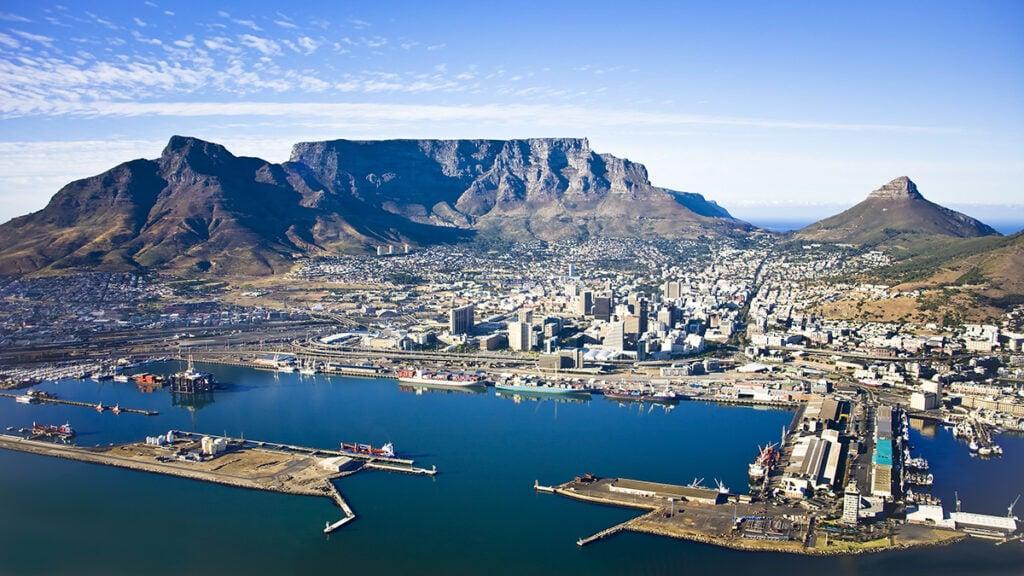Africa-Press – South-Africa. Cape Town and the broader Western Cape is set to overtake Johannesburg as the commercial hub of the African continent as enhanced service delivery continues to attract investment regardless of South Africa’s broader decline.
While Johannesburg remains the wealthiest city in Africa, Cape Town is closing in on the top spot quickly and is set to overtake South Africa’s historic wealth capital by 2030.
Importantly, this trend appears to be irreversible and, while Johannesburg can bounce back quickly with the right municipal management, Cape Town is set to continue receiving a disproportionate share of investment.
This is feedback from political analyst Dr Frans Cronje, who outlined the continued rise of Cape Town at the second BizNews Investment Conference.
Cronje explained that the decline in service delivery from the central government has resulted in the formation of enclaves across the country where private companies supplement or even replace state services.
At a small scale, this is represented by lifestyle estates that are highly self-sufficient and, at a larger scale, the Western Cape is increasingly becoming a well-run enclave.
This leads to greater investment in these enclaves, further increasing their appeal to more South Africans, and resulting in semigration and further investment.
The further decline in service delivery from the central state pushes more South Africans towards these enclaves.
As such, a feedback loop is created whereby the increased mismanagement of the central state results in further growth and investment in enclaves.
“I think the Western Cape is one of the world’s great emerging market economies of the next thirty to forty years. Regardless of what happens to the country,” Cronje said.
“So, if we are successful and the economy grows quickly and South Africa regains its place as a leading emerging market, the head start the Western Cape already has just draws more energy from that.”
Cronje explained that the horse has already bolted from the stable, with the Western Cape’s improved service delivery putting it far ahead of other provinces.
This leads to it garnering an increased share of investment in South Africa, regardless of the broader economy being stagnant.
“If, on the other extreme, the north of the country falls into greater chaos and anarchy, the dumping of skills and capital in the Western Cape will just become greater and greater,” Cronje said.
“And so, the Western Cape is a winner every way you slice it. It is about as safe a bet as you can make anywhere in the world.”
Smaller cities on the rise
Social Research Foundation head Dr Frans Cronje
As Cape Town itself becomes increasingly expensive to live in, smaller cities on its periphery and further afield are benefiting from increased investment.
Cape Town’s millionaire population has skyrocketed by 33% in the past decade, despite South Africa’s economic stagnation. In contrast, Johannesburg’s has fallen by 35%.
The Mother Cit now also has more centi-millionaires, individuals with over $100 million, and billionaires than Johannesburg and Pretoria combined.
Henley & Partners said Cape Town has shown impressive wealth growth over the past decade and is on track to overtake Johannesburg to become Africa’s wealthiest city by 2030.
However, Cape Town is not the fastest-growing city in terms of millionaire numbers, with the Cape Winelands region seeing its millionaire population soaring by 42% in the past decade.
This has been largely driven by the semigration of retirees to the area, which includes Paarl, Franschhoek, and Stellenbosch.
Off a much lower base, the Garden Route has also proven to be a hub for rich South Africans, with it being home to 3,200 millionaires – up by 30% in the past decade.
This scenic coastal stretch runs from Mossel Bay in South Africa’s Western Cape to Storms River in the Eastern Cape.
Notable towns on the route include Plettenberg Bay, George, Knysna, Wilderness, and Mossel Bay, as well as smaller up-and-coming hotspots such as Nature’s Valley and Keurboomstrand.
Cronje said these smaller cities are increasingly benefiting from the overflow from Cape Town and the rising cost of living in the Mother City.
“I was in Port Elizabeth recently, and the Western Cape frontier is pushing up against PE as it has become more expensive,” Cronje said.
“I thought about it and, if you get the right election result in Port Elizabeth and push the Western Cape frontier further, and it begins to spill over, somewhere like PE might be the next hotspot.”
For More News And Analysis About South-Africa Follow Africa-Press






